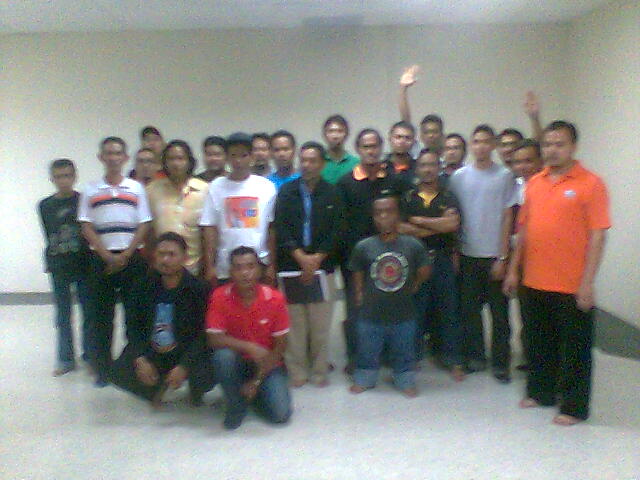From The Diplomat
Let’s start by talking about the current situation in Malaysia. In a recent interview you described it as being almost a failed state, particularly in the context of its neighbours. What makes you say that and what in your opinion has caused that situation?
The issue of governance and in terms of failing to deal with the issue of endemic corruption, the judiciary is still questionable, so their decisions and independence and the absence of control; the media is so pervasive. For example, in the latest campaign there is a resurgence of the communist party. These are signs, you know, that [Malaysia] is becoming so authoritarian and so repressive. Why is there a need now to have a massive campaign in the government-controlled media – which is entirely, fully controlled by them – to suggest that there is a resurgence of communism?
There has also been a great deal of talk in Australia in particular about this being the Asia-Pacific Century. Do you agree with that? How do you see Malaysia benefiting from any possible shift in global economic and political power?
Well, I don’t have an issue against that, in terms of there’s a need to fortify and even strengthen the economic cooperation within the region. I think we should be all-encompassing in the region. So I think that now there has been eagerness, particularly in the light of the latest financial and economic crisis. But we have to move on first by putting our own house in order. Yes the impact is felt by all countries and the countries have to take measures with these stimulus packages, but the way it is being done is questionable. It must be transparent. And [in Malaysia] we have to look at how it’s being done in Malaysia compared to China. China focussed 40 per cent [of its stimulus] on infrastructure in the earthquake-affected areas; another 30 per cent on rural infrastructure…
I am no great friend of China, but still there are issues that I think we have to look [at] and study. Now compare this to Malaysia. Out of the $70 billion so-called package, the funds allocated for infrastructure per-say is only $15bn. But I charge there are embellishments to push the figure upwards: $10bn for the stockmarket; another $15-20bn for bank guarantees in case there are problems. So you are not talking about a proper stimulus package; we do not know where it is spent or how it is going. Even at a time of crisis, I would use this creative destruction because you can use this to improve and build anew, not to fortify and strengthen the auxiliary and corrupt practices.
So is there a real danger in your eyes of Malaysia slipping behind its neighbours, particularly in light of the current global financial crisis?
In terms of the fundamentals, I must admit that Malaysia is on a much stronger footing, partly because of better infrastructure and the financial services. In light of the last crisis of 1997-98, I think some of the measures have been adopted to strengthen the position of the financial institutions, including the banking sector. That I concede, and I think is something positive that will help us. Similarly there are a lot of reserves, which are quite strong, although, I think, slipping really fast.
Our concern is more with the issue of governance. If you fail to improve the institution of governance, including the casting of an economic policy and preparedness to move so that Malaysia becomes more competitive, then we will certainly lose out. In some sectors we have lost out even to Indonesia and Thailand, to China, of course, and even Vietnam now. So I think that we have to depart from the obsolete economic policies. Now I think some positives measures have been implemented – in the services sector, for example. But liberalising and bringing in foreign investors [counts for nothing when you] fail to deal with the more substantive issues, like the need for affirmative action. Then these policies can never be fully endorsed by the general public.
I am for the market economy and for liberalisation, but we cannot ignore the grinding poverty and we cannot ignore the importance for affirmative action based on need, not on race. And more important still, the need to strengthen the system of government; the judiciary must be independent. The media must be free. How do you then evaluate and assess the success of policies if the statistics are all questionable. The government says ‘Our growth is two per cent, inflation is 2.5 per cent.’ [But those figures are] generally not well accepted. The people still have doubts and questions and are cynical, and this is dangerous in a modern government.
So is a fundamental overhaul needed in Malaysia? Not just a change of political party being in power, but in terms of overhauling the judiciary, overhauling the bureaucracy in order to eliminate an endemic culture of nepotism and corruption and cronyism?
Yes. But what has this result been instead? Racism – the problem of the Chinese and the Hindus. And then there is this new threat, including communism. Some rural sectors remember what it was like to suffer under militant communist activities in the ’50s and ’60s.
Last year you set a number of deadlines for the transfer of power. That was when Prime Minister Abdullah Badawi was there. Now that there is a new, or relatively new, prime minister in Najib Razak, are you still confident that transfer will happen in the next year or two?
We have to hope it will happen. We have won every single by-election [since the general election], despite the fact that we have to struggle without any exposure in the media. In the mainstream media in this country – TV, newspapers – you cannot see any photograph of myself or my wife or my daughter at all. To win under those trying circumstances, with questionable conduct of the election commission and the judiciary is extraordinary. So I’m still optimistic that given the chance, we would prove ourselves.
Quite clearly your opponents aren’t going to give in without a fight. You’re currently facing renewed allegations – similar allegations to the ones that were eventually dismissed after you spent six years in solitary confinement. It must take an enormous personal, physical and emotional stress on you and your family.
Yes, this isn’t an easy thing, particularly when it becomes so vicious and scurrilous a personal attack and dealing with exactly the same players. It is tough, but I am confident enough that it will be a very good fight inside and outside the court. But I’m not too optimistic about the issue of the conduct and independence of the court based on the previous decision and the influence the executive has on the courts.
What is of course is disconcerting to us and other opposition leaders is that the personal attacks on me and others have increased, using all agencies. The media has always been controlled, but the manner is different. We thought things might change with the new prime minister and his pronouncements of change and the separation of powers, but the media has become a sort of propaganda tool for the ruling party.
You’ve clearly got the ruling party and the prime minister rattled at the minute, because as you say, you’re winning by-election after by-election and clearly the general sense in the country is of the desire for change from all the people; from the native Malays, and also the Chinese, Indian elements of the population as well. Which must give you confidence and a degree of strength as you’re going through this?
Yes, it does. But it’s also becoming a joke – all this time and resources being spent to deflect from the central issue of poor governance. It’s strengthening our opposition forces.
If your worst-case scenario eventuates and you’re found guilty and sent to prison, what will that mean for those opposition forces? Will they be able to survive, to progress, without your unifying presence?
I have been told by very reliable sources that close to the ruling clique that one way out for that clique is to send me back to prison. I don’t know whether that involves Najib himself; I just hope that sanity prevails. But the fact that they proceed with charges so frivolous is shocking to say the least. But, of course, they’ve done it before. This is clearly a politically machination by a desperate group, so I have to be very prepared to fight.
But assuming the worst does happen – and I don’t believe it will happen because now I am even better prepared [with medical reports from government doctors] – we have made preparations to ensure the opposition coalition survives.
Pantun Pusaka Dr. Burhanuddin Al-Helmy
Di atas robohan Kota Melaka,
Kita dirikan Jiwa Merdeka,
Bersatu padulah segenap baka,
Membela hak keadilan pusaka.
Di atas robohan Kota Melaka,
Kita dirikan Jiwa Merdeka,
Bersatu padulah segenap baka,
Membela hak keadilan pusaka.
Ahad, November 01, 2009
Langgan:
Catat Ulasan (Atom)














Tiada ulasan:
Catat Ulasan